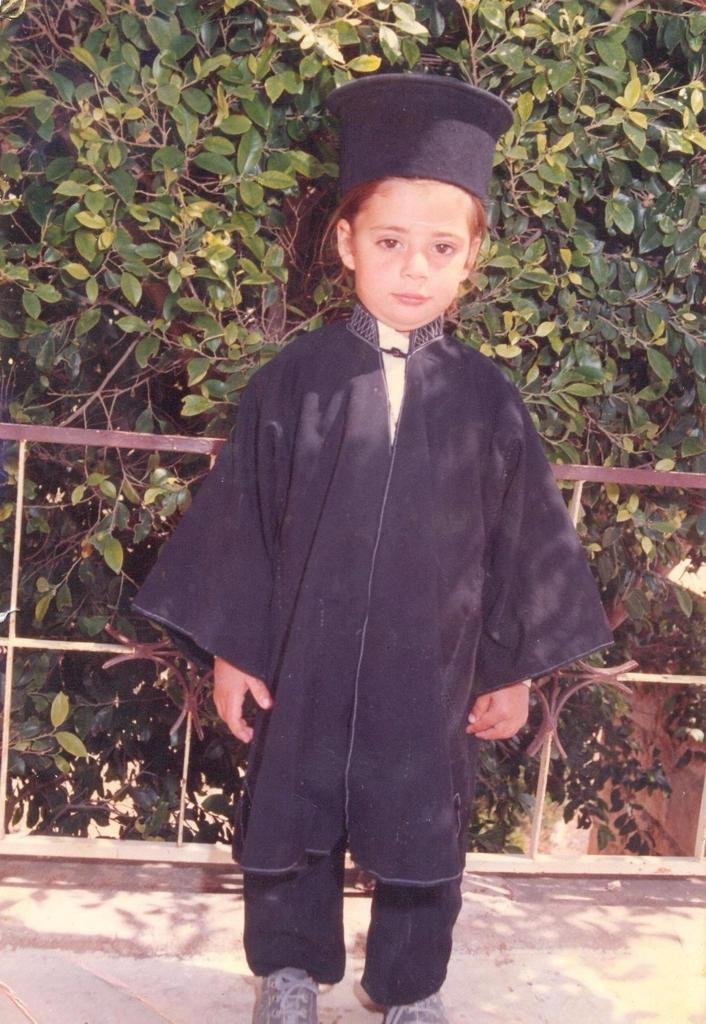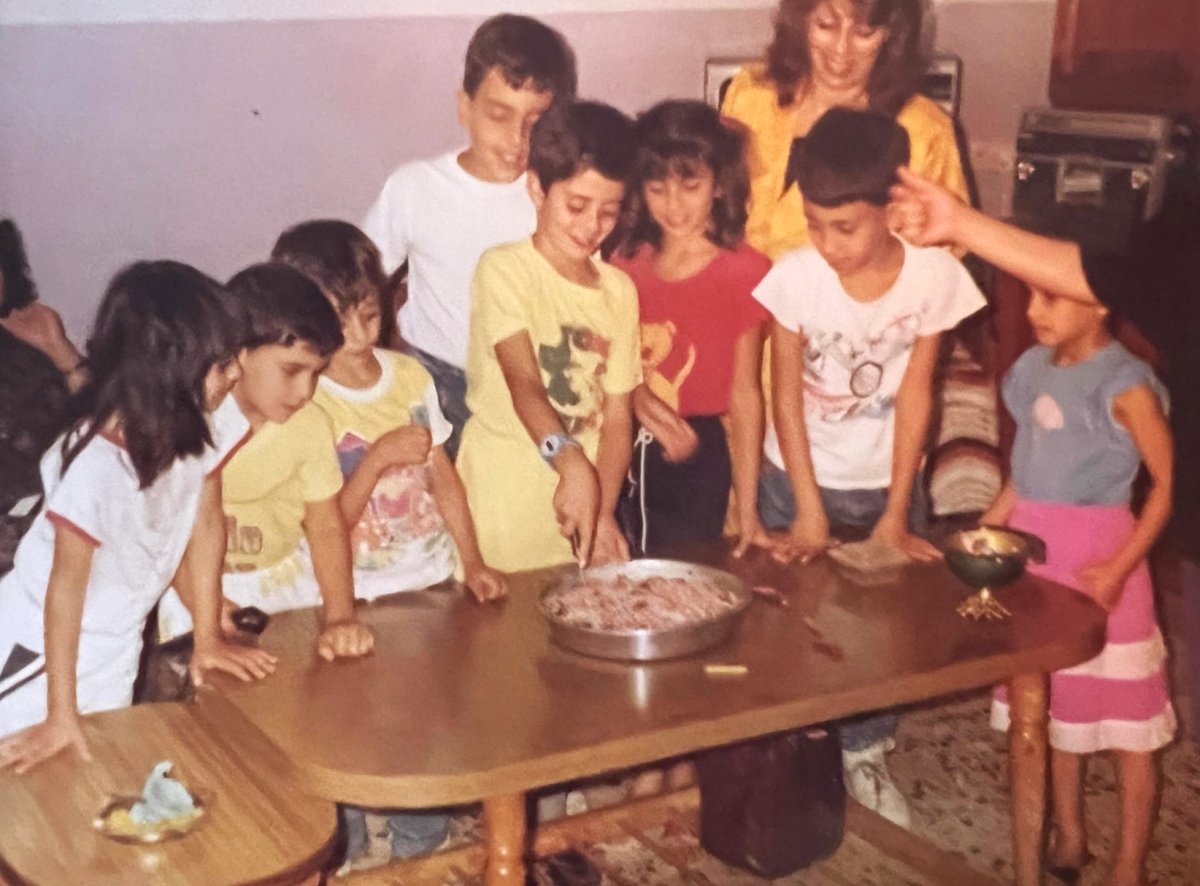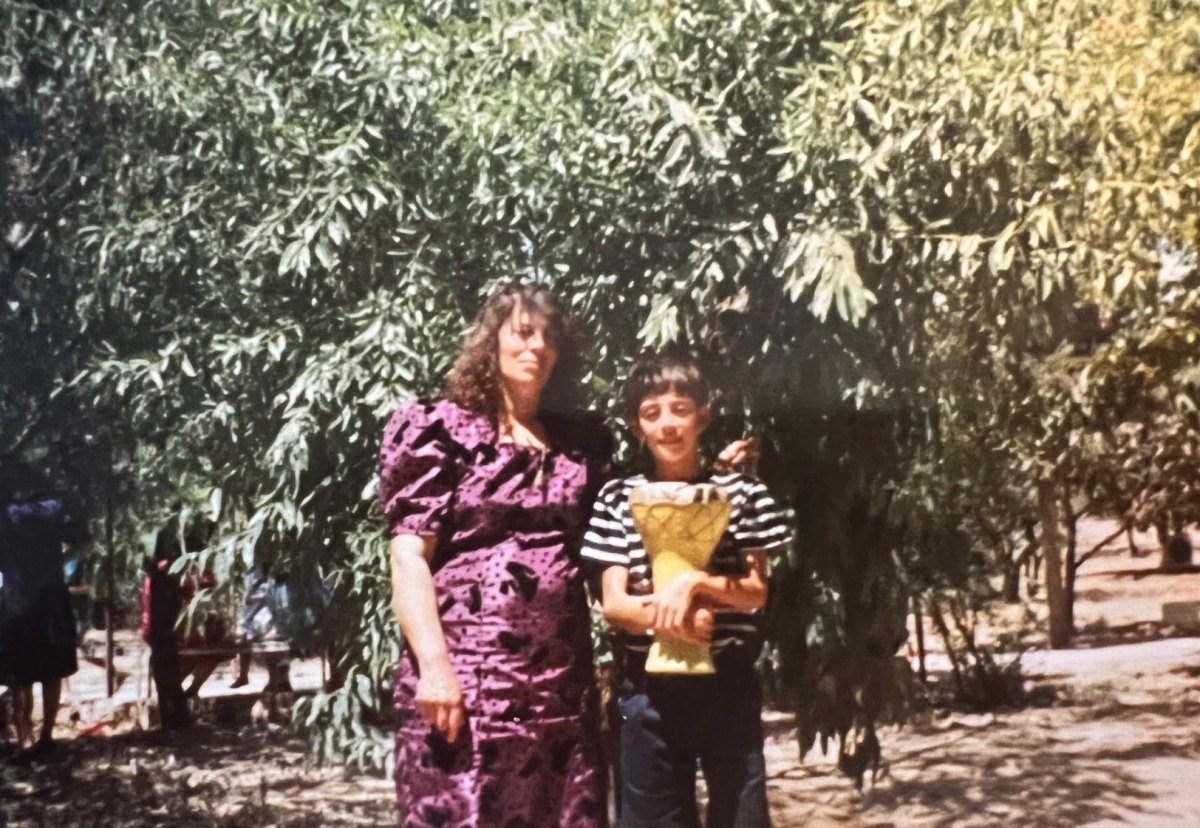Originally published in Newsweek on Nov. 20, 2023.
One of Elias Deis’ first childhood memories is running from soldiers opening fire on his neighbors.
It was 1989. The First Intifada was in full swing. At the uprising’s heart was Elias’ village Beit Sahour, a Palestinian hamlet near Bethlehem. Locals adopted the revolutionary slogan, “No Taxation Without Representation” and stopped paying taxes to Israeli authorities.
After decades under military occupation—while their Israeli neighbors enjoyed democratic rights—Palestinians refused to obey their occupiers any longer. In response, Israel’s defense minister Yitzhak Rabin ordered soldiers to “break the bones” of protestors.
But it’s hard to get people to abandon their dreams. Especially when they dream of freedom.
Beit Sahour won the tax strike. The Intifada got Israel to the negotiating table, resulting in the 1993 Oslo Accords promising Palestinian self-determination. Rabin himself signed it, showing how quickly warmongers can become peacemakers.
Elias still lives in Beit Sahour. He’s spent years in the peace movement and should be a poster child for coexistence. Yet he’s never felt more disillusioned.
“After the accords were signed, the forest where we’d go for family picnics was destroyed to build an Israeli settlement,” he told me in an interview. “The monastery we’d walk to for pilgrimage is off-limits behind Israel’s wall. The army raids Bethlehem every night; their checkpoints surround Beit Sahour. Nothing has gotten better in the West Bank. Things have only gotten worse.”
Israel blames Hamas for its current assault on Gaza. But Elias’ experience is a reminder that for Palestinians under the Palestinian Authority (PA), which chose peace with Israel, life is hardly better.

Secretary Antony Blinken recently proposed the PA govern Gaza once Israel’s war ends. After Israeli leaders hinted they plan to re-occupy Gaza, Biden’s administration realized Israel lacks a clear plan following its goal of “eliminating” Hamas.
But a look around the West Bank reveals how out-of-touch the proposal is—the PA is headed by octogenarian Mahmoud Abbas, in power indefinitely after canceling elections. He stays afloat on U.S. and European Union aid, primarily because he allows Israel’s military to raid Palestinian cities and imprisonPalestinians—10,000 at last count. Israeli violence has killed hundreds this year and displaced thousands. Thirty years after Palestinians made peace with Israel, they still live under occupation.
Abbas lacks legitimacy because he’s failed to protect Palestinians. If there are Palestinians who support violence, it’s because they’ve seen peace with Israel means peace for Israelis but not Palestinians.
Both Israelis and Palestinians deserve peace and security. For that to happen, President Joe Biden must play a central role.
Israel’s leaders are motivated by rage. They rejected hostage-freeing negotiations with militant groups and placed an emphasis “on damage, and not accuracy.” They say they consider civilians legitimate targets; by bombing hospitals, bakeries, fishing boats, and homes, and cutting off water, electricity, and fuel they have proven it.
Killing innocent Palestinians for Hamas’ crimes is no different than killing innocent Israelis for their military’s crimes. Over 11,000 dead Palestinians might play well to a public eager for revenge, but slaughter will not bring peace. It will only make peace harder to achieve in the future.

Good friends are those that tell you hard truths. The U.S. should not send Israel $14 billion in military aid with no strings attached. Israeli Prime Minister Benjamin Netanyahu is more unpopular than ever among Israelis; he promised they could indefinitely occupy Palestine without facing consequences and now many blame him for Hamas’ attack. Biden should be reining him in, not writing him a blank check.
It’s unlikely Israel can annihilate Hamas. It definitely cannot eliminate Palestinians’ desire for freedom. Keeping Palestinians in open-air cages or under apartheid will only lead to future resistance. Israel cannot wish Palestinians away; that’s genocide.
Israel needs a shared vision of the future with Palestinians. This will involve talking to the PA—and Hamas.
Israel says it cannot talk to a group dedicated to its destruction. But Palestinians could say the same. Netanyahu’s party states Israel will never cede sovereignty between the river and the sea. Israel’s finance minister governing the West Bank denies Palestinians even exist.
Negotiations require difficult steps on both sides. Dropping bombs is easy; taking risks for peace is hard. To halt the cycle of violence, it’s necessary to engage in diplomacy.
Biden must call for an immediate ceasefire accompanied by negotiations to trade Israeli hostages for Palestinian prisoners. Israeli hostages’ families are pleading for this.

Hostage negotiations should be a confidence-building measure toward long-term peace talks. Those will require rethinking received wisdom. As former President Barack Obama found out, Israeli settlement expansion has rendered a two-state solution near impossible. A single, democratic state with equal rights for everyone might make more sense. All options should be on the table.
“The Holy Land is holy for all of us. We all have this connection to the land. The violence we’re seeing right now is the result of a system of injustice and oppression. Domination won’t bring an end to violence. Everyone needs to understand that we all have the right to live in this land with equal rights,” Elias said.
Things cannot go on as they are—rather than trying to hand Gaza off to a nearly-powerless PA, Biden must recognize reality. The only path to peace starts with ceasefire and negotiations—and a recognition that everyone has the right to live with dignity.